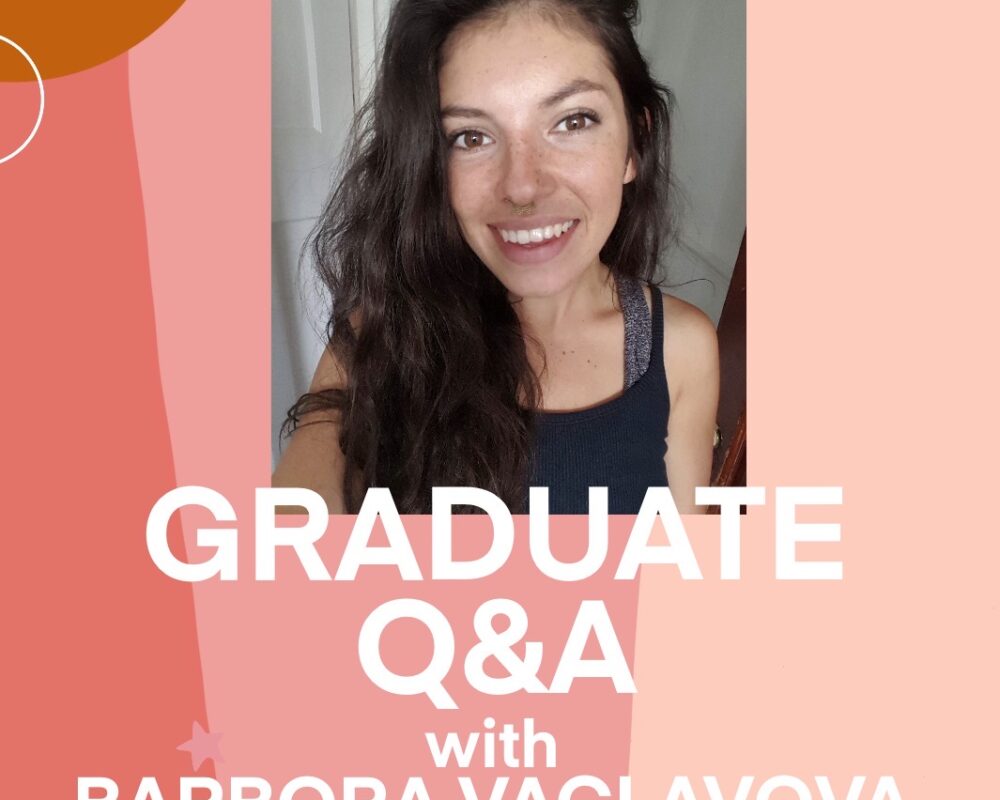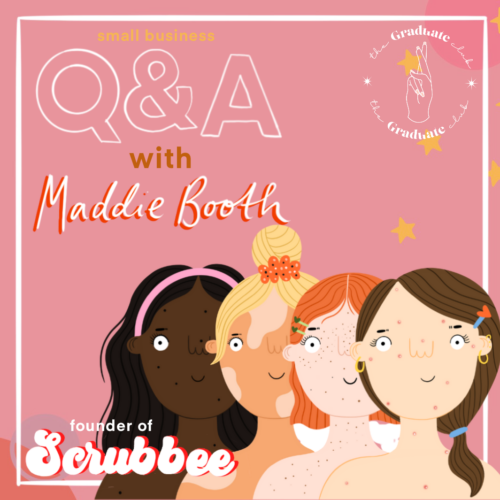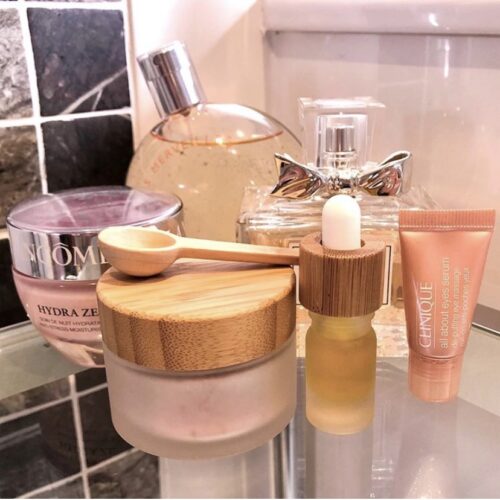What were your initial career plans for life after University?
Truth be told, I went to university with a lot of tentativeness and to even start was a big step for me. In the beginning, graduation was still in the mythical realm of the distant future, a light at the end of the three-year tunnel, which I couldn’t even see yet. I just kept telling myself and everyone around me, “I’m just going to give it a try“, in the hope that it would ease some of the doubt I felt, whilst being unsure if I even had it in me to make it to the end.
Nevertheless, I was quite determined. It had been two adventurous and slightly chaotic years since I left secondary school, during which I took any job on the go. But it got quite tiring, and I wanted to be able to finally get a job because I wanted to do it, not just to cover my bills.
I’ve had a dream of becoming a writer ever since I learnt how to read as a kid. I’ve always loved writing, but wouldn’t have even known where to start without some kind of direction from the university. Therefore, I held my breath, threw myself in at the deep end and moved to Portsmouth to study Journalism with English Language.
At the time, I didn’t think as far as career plans. I just had a great deal of excitement in me with a very vague idea of wanting to come out the other end a freelance travel writer.
How did you find the experience of graduating?
Quite underwhelming since there was no actual graduation due to the circumstances that surrounded the last few months of university. At the same time, I didn’t mind as much – even without standing in a big fancy hall with a gown on, it was a feeling of great liberation and achievement. Even more so because it was done in a global pandemic, which all of us 2020 graduates will be putting on their CVs in bold.
Shortly after that came the realization that this isn’t the end of hard work at all. More like the beginning of trying to navigate what, on the less optimistic days, appeared to me to be the post-apocalyptic wasteland of a job market.
Paradoxically, lockdown was the perfect situation to dive into finishing all of my assignments and dissertation. Suddenly there were no distractions, no social pressure, and university work created at least some kind of structure for the long, stretching days. Every cloud…
Were there any hurdles you had to overcome getting to the point you are at now?
My lack of self-discipline and time management skills, a tendency to procrastination and self-doubt, love of partying to name a few.
My first year was a typical first year – doesn’t count, so you’re out low-cost partying three nights a week, then keeping yourself up with a double espresso during your 9 am lecture the next day. That is if you even make it there. Only starting assignments when you really have to – usually a few days before the deadline. Disclaimer: not a recommendation, but looking back I wouldn’t have learned self-discipline any other way than pushing myself to my very limits.
We have all heard those words before: ‘this is not the type of assignment you can start the night before’. Well, watch me give it a go anyway… and you’ll probably find me in the library early the next morning, frantically trying to make the noon deadline – true story.
Jokes aside, I’m not exactly the one to preach either. I have learnt one thing for myself though: motivation’s great if you have it, but it wavers like the weather. It’s self-discipline you need, and to learn to push yourself to just do it – instead of thinking about doing it, letting the anxiety built up and then still leaving it until the next day.
What aspects of your University experience have helped you reach the point you are at today?
The amount of practical work in the Journalism course – especially having a choice between a dissertation and a practical project in the final year. Because it was precisely the practical aspects of the project that seemed intimidating at first, it was what I needed to do to get a real taste of what I’m signing up for and to find a real passion for it. To gain some confidence in the process, by proving to myself that I’m capable of doing whatever needs to be done and that with practice it will only become faster and smoother.
Another one – it’s up to you to show up and do the work, but know that you always have support from university who are always happy to help if you ask. Try it yourself first, but ask for help if you find yourself struggling – there’s no shame in that.
I also appreciated the diversity of personalities and characters you come across on your university journey; the people you can learn from, those who become friends and the ones who teach you to set your boundaries and show you what to steer away from.
If you could go back and tell yourself one thing at the start of University, knowing what you know now, what would you say?
Go have that sandwich year. And get some work experience while you’re still at uni.
Do you have any advice to graduates who would want to go down a similar pathway?
- Think about what you want to do – allow yourself to daydream. The images that will come up are the ones that will switch your mind on to notice any details or connections that might eventually lead you to what you imagined.
- Don’t be afraid to think big, but be ready to start small.
- Similar to my younger self – get experience. Don’t be afraid of hard work and of not being good enough as improvement doesn’t happen by itself
- Don’t worry about what other people think, you do you.
Having said all this, even the simplest of truths have to be felt in experience to make sense. Otherwise, they’re just empty words, clichés – at least for me they were.





Leave a Comment